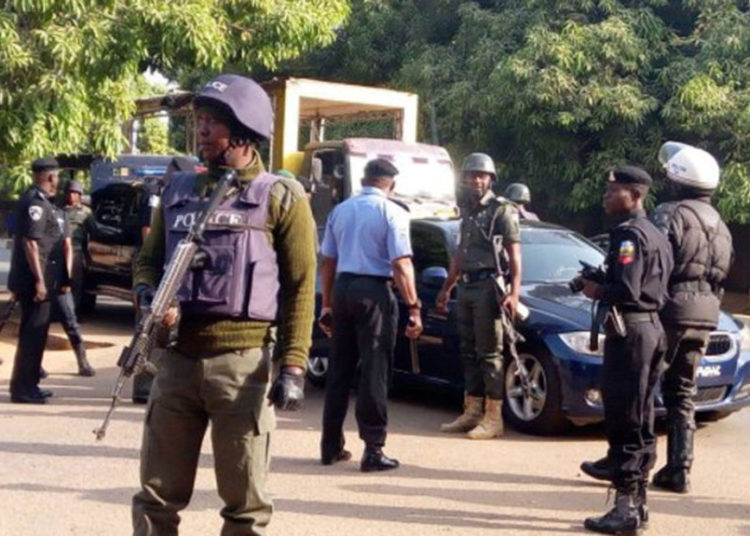As Nigeria’s war on terror gains momentum, so also is the casualty rate within the ranks of the security forces pushing the campaign. The irony, though, is that not sufficient attention is paid to the high price these patriots are paying to ensure that the rest of us live in an environment free of stress and hassles. Not a few Nigerians are worried that the casualty level of security and state officials responsible for protecting the citizens and enforcing laws is rising daily to unacceptable levels.
Curiously, a foreign body that saddles itself with the task of compiling data obtained from the National Security Tracker, an initiative of the Council of Foreign Relations, a United States think tank, claims that no fewer than 323 security officers in Nigeria were killed by non-state actors across the country between January 1 and May 15, 2022.
In our candid opinion, this figure is immensely conservative. We say this with due sense of responsibility when the severity of operations in all the theatres of war in the country are put in their proper perspective. That United States’ agency factored in the casualty figures involving security operatives from the military, the Police, Nigeria Security and Civil Defence Corps, Nigeria Correctional Service, Vigilante Group of Nigeria, Nigeria Drug and Law Enforcement Agency, and Ebubeagu security outfit.
A breakdown of the figure indicated that a total of 78 security operatives were killed in the first month of the year, while 33 died in February, 154 in March, 45 in April, and 13 have so far been killed in May. Out of the 78 security operatives killed on January, 20 were soldiers, 11 policemen, 46 vigilantes, and one NSCDC personnel.
In February, out of the 33 that were killed, four were soldiers, 26 were policemen, one NDLEA operative, one vigilance group member, and one Joint Task Force member. In March, out of the 154 killed, 42 were soldiers, 17 policemen, one NDLEA operative, 70 vigilantes, one NSCDC official, and 19 others, two prison officers and two Ebubeagu personnel.
We Are In Danger Without Active Police – Olubadan
In April, out of the 45 security operatives killed, 30 were soldiers, 10 policemen, one vigilante, two NSCDC officials, and two others. Between May 1 and 15, a total of 13 security operatives have so far been killed, six of them were soldiers and seven policemen. From January 1 to May 15, a total of 103 soldiers, 71 police officers, 117 vigilantes, three NSCDC personnel, two prison officers, two NDLEA operatives, two Ebubeagu personnel, and 22 others were killed.
Sadly, since the time this report was released, the casualties do not seem to be abating. In June, gunmen believed to be bandits, killed at least 43 people including 30 soldiers and seven mobile police personnel in an attack on a mining site in Shiroro Local Government Area of Niger State, local sources said.
Also last week, bandits attacked the convoy of the Assistant Inspector General of Police, Zone 12, Audu Madaki, killing one of his guards. The AIG who was said to be on his way to Abuja from Bauchi when his vehicle was ambushed also sustained injury.
Similarly, gunmen, recently, attacked some officials of the 7 Guards Battalion, Presidential Guards Brigade of the Nigerian Army. The incident, which took place around the Bwari Area Council of Abuja, reportedly left three soldiers dead and eight personnel wounded.
According to a report, at least 49 people were killed last week (July 24-30) by non-state actors in various attacks across Nigeria. Out of the total number, nine were soldiers including two officers, five were police officers while the remaining 35 were civilians. A total of 12 incidents were recorded across five geopolitical zones.
In the considered opinion of this newspaper, this simply cannot continue. If non-state actors have killed this number of security officials this year alone, where lies the fate of the common man? Needless to say, Nigeria is at war and our security agents have become vulnerable to attack. As we have consistently advocated on this page, our security agents need to be more proactive instead of reactive. They should be able to react swiftly to intelligence reports to forestall future attacks from ambushes by non-state actors.
We appreciate the risks they take in the course of carrying out their lawful duties, we also remind them of the need to carry out those professional duties in a manner that will reduce the number of casualties. We say this because it is often said that a good soldier is one who fights and lives to tell the story. From this standpoint, we agree with Vice President Yemi Osinbajo in his comments that Nigeria’s current security challenges and emerging threats require the country’s military and other relevant stakeholders to be several steps ahead of these enemies of the society while also stepping up local production of armaments.
There is also the need to escalate confidence-building initiatives by the security agencies with communities so that citizens can share information willingly with security agents and in the process reduce risks that can cause avoidable deaths.
We’ve got the edge. Get real-time reports, breaking scoops, and exclusive angles delivered straight to your phone. Don’t settle for stale news. Join LEADERSHIP NEWS on WhatsApp for 24/7 updates →
Join Our WhatsApp Channel










